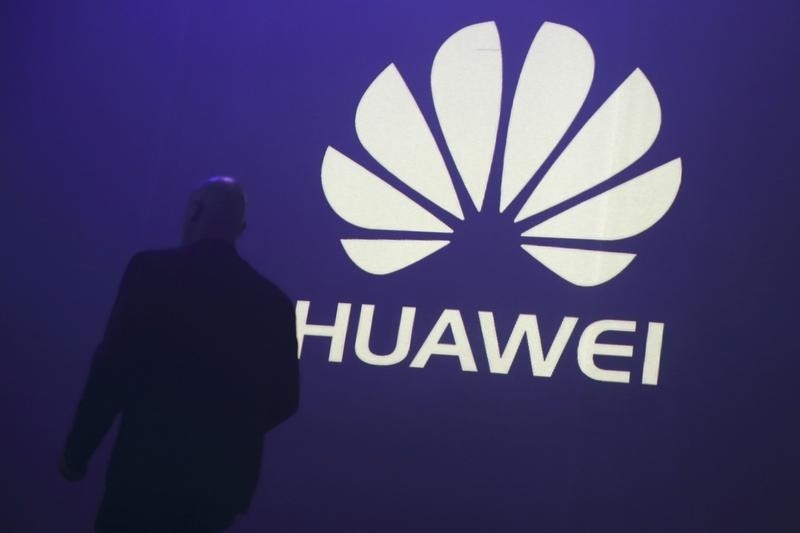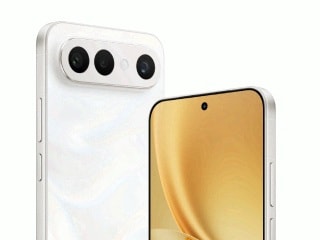- Home
- Mobiles
- Mobiles News
- Samsung Electronics Sues Huawei in China for Patent Infringement
Samsung Electronics Sues Huawei in China for Patent Infringement

The suits mark the latest salvo in a fight between the world's No. 1 and No. 3 smartphone makers, who compete fiercely across the world in an industry that researcher IHS says is worth $332 billion (roughly Rs. 22,30,145 crores) this year.
The South Korean firm sued Huawei in a Beijing court about two weeks ago for allegedly infringing six of its patents, a spokeswoman said. She did not elaborate on the types of patents or the other Chinese courts involved.
"Despite our best efforts to resolve this matter amicably, it has regrettably become necessary to take legal action in order to defend our intellectual property," Samsung told Reuters in a statement.
Shenzhen-based Huawei Technologies - also one of the world's largest telecom equipment manufacturers - said in a statement it had not received a "formal complaint" but would defend itself as necessary.
"In the absence of a negotiated settlement, litigation is often an efficient way to resolve" intellectual property rights disputes, it said.
Huawei sued Samsung in the United States and China in May, accusing its rival of infringement on patents for fourth-generation (4G) cellular communications technology, operating systems and user interface software.
Chinese technology companies have often been on the receiving end of such lawsuits, so Huawei's US litigation marked something of a reversal of roles reflecting its growing clout in the global telecommunications and smartphone markets.
CIMB analyst Lee Do-hoon said neither company was likely to be motivated by monetary compensation from the legal battle.
Huawei could be angling to boost its reputation by taking on the top smartphone player, he said, while Samsung's suit might be a manoeuvre to force Huawei to settle its claims as soon as possible.
"If you look at the patent battle with Apple and Samsung ... it ultimately created a lot of benefits for Samsung in a kind of an advertisement," he said.
"Huawei might also be trying to create some noise marketing for itself," he said, adding he expected the two firms to eventually reach a deal such as a cross-licensing agreement.
Huawei became the first Chinese handset vendor to ship more than 100 million smartphones in a year in 2015 when a 44 percent jump in its shipments defied a market slowdown.
© Thomson Reuters 2016
For details of the latest launches and news from Samsung, Xiaomi, Realme, OnePlus, Oppo and other companies at the Mobile World Congress in Barcelona, visit our MWC 2026 hub.
Related Stories
- Samsung Galaxy Unpacked 2026
- iPhone 17 Pro Max
- ChatGPT
- iOS 26
- Laptop Under 50000
- Smartwatch Under 10000
- Apple Vision Pro
- Oneplus 12
- OnePlus Nord CE 3 Lite 5G
- iPhone 13
- Xiaomi 14 Pro
- Oppo Find N3
- Tecno Spark Go (2023)
- Realme V30
- Best Phones Under 25000
- Samsung Galaxy S24 Series
- Cryptocurrency
- iQoo 12
- Samsung Galaxy S24 Ultra
- Giottus
- Samsung Galaxy Z Flip 5
- Apple 'Scary Fast'
- Housefull 5
- GoPro Hero 12 Black Review
- Invincible Season 2
- JioGlass
- HD Ready TV
- Latest Mobile Phones
- Compare Phones
- Vivo X300 FE
- Tecno Pop X
- Apple iPhone 17e
- AI+ Pulse 2
- Motorola Razr Fold
- Honor Magic V6
- Leica Leitzphone
- Samsung Galaxy S26+
- MacBook Neo
- MacBook Pro 16-Inch (M5 Max, 2026)
- Tecno Megapad 2
- Apple iPad Air 13-Inch (2026) Wi-Fi + Cellular
- Tecno Watch GT 1S
- Huawei Watch GT Runner 2
- Xiaomi QLED TV X Pro 75
- Haier H5E Series
- Asus ROG Ally
- Nintendo Switch Lite
- Haier 1.6 Ton 5 Star Inverter Split AC (HSU19G-MZAID5BN-INV)
- Haier 1.6 Ton 5 Star Inverter Split AC (HSU19G-MZAIM5BN-INV)
















